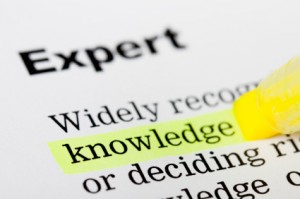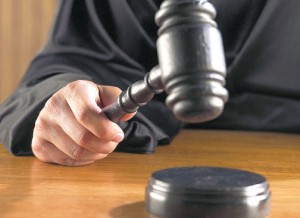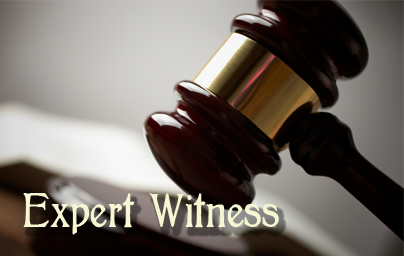In this blog post, Mr. Sreeraj.K. V, a student of Government Law College, Ernakulam, Kerala writes about the relevance of an expert witness in criminal law. The post covers areas like the definition of an expert and expert evidence, various provisions of the Indian Evidence Act, importance and admissibility of expert evidence and also analysis of certain cases which proves the evidentiary value of expert evidence in India.
In simple words, an ‘expert’ is a person who has a high level of skill or knowledge in a particular subject or field. In the field of law, an expert and his opinion as an expert witness in a case place a key role in deciding the case by the Court. Legally speaking, an expert is a person, who specializes in a field of knowledge, often technical, who may present his/her expert opinion without having been a witness to any occurrence relating to the lawsuit or a criminal case.  It is an exception to the rule against giving an opinion in the trial, provided that the expert is qualified by evidence of his/her expertise, training or special knowledge. If the expert is challenged, the attorney for the party calling the ‘expert’ must show necessary background through questions in court.
It is an exception to the rule against giving an opinion in the trial, provided that the expert is qualified by evidence of his/her expertise, training or special knowledge. If the expert is challenged, the attorney for the party calling the ‘expert’ must show necessary background through questions in court.
If the expert is challenged, the attorney for the party calling the ‘expert’ must show necessary background through questions in court. 
In the law of evidence, an expert witness is a person who is allowed to give opinion evidence as opposed to evidence of his perception. This is the case only if the witness is skilled in some appropriate discipline. An exception to the usual rule of practice whereby witnesses are heard one after the other and do not hear the evidence of the preceding witness is made of competing experts.[1] According to section 45 of the Indian Evidence Act, it provides for certain provisions as to the opinion of experts. ‘When the Court has to form an opinion on a point of foreign law, science or art, or as to identify handwriting, the opinions upon that point of persons specially skilled in such foreign law, science or art, are relevant facts. Such persons are called experts.[2] In fact, the provisions enumerated under Section 45 to 51 of the Indian Evidence Act which provides the relevancy of experts, and the opinion is exceptional to nature of the general rule that evidence is to be given to the facts only which are within
the knowledge of the witness. This exception is based on the principle that the court can’t form an opinion on the matters, which are technically complicated and professionally sophisticated, without the assistance of the people who have acquired special knowledge and skill on those matters. Conditions for the admissibility of expert opinion are:
- That the dispute can’t be resolved without expert opinion
- That the witness expressing the opinion is an expert.[3]
Duties of an expert
- An expert is not a witness of fact
- His evidence is of advisory character
- An export deposes and does not decide
- An expert has to furnish necessary scientific evidence to the judge so that he can frame independent judgments by application of such evidence.
There is a big difference between expert evidence as well as the evidence given by the ordinary person. An expert gives his opinion on a particular field of knowledge such as fingerprint, handwriting, etc. which is of an advisory character. The court can’t pass an order of conviction purely on this basis as it is not conclusive. An expert gives his opinion on his experience, skills, and knowledge in that particular field. On the other hand, an ordinary witness states the fact in connection with that particular incident only. The opinion of a normal witness is non-admissible. The court may pass an order by the evidence given by the eyewitness. A normal witness provides facts of the incident what he had seen heard or perceived.[4]
Admissibility of expert evidence
Expert opinion will be admissible only when the expert is examined as a witness in the court. The opinion of the expert will not be admissible in the court unless the expert gives proper reasons for his opinion and it is being tested during the cross-examination by the adverse party. But to curtail the delay and expenses involving in securing assistance of experts, the law has provided certain provisions regarding the examination of scientific experts.
According to Section 293 CrPC, the report of certain Government scientific experts provided under this section will be held admissible as evidence in inquiry, trial or other proceedings of the court, if the court can summon or examine the experts. It is argued that after all, the expert is a human being and however impartial he may be, he will be producing certain evidence and opinions for the party which calls him to an extent. One of the rules of caution that all courts follow as regards expert opinion is that they must never surrender their free will or independence to an expert. In all cases, wherein expert evidence is needed, the court must after giving it proper importance, make up its mind on the issue upon which expert testimony is given.[5]
There are some cases which give us a clear picture regarding the importance and admissibility of expert and the evidence produced by them. In the case of Kishan Chand v. Sita Ram[6], the court stated that the opinions of the experts on the question whether the same person wrote two or more documents, or different persons are relevant.
 Conflicts of opinions of experts lead to the discretion of the Court in forming its decision looking into the signatures on such documents.[7] There are various other cases such as Ram Narain Singh v. State of Punjab[8], where the Court questioned the opinion of the expert by stating that both evidence provided by the normal witness as well as expert evidence are colliding. Thus, the prosecution was not able to prove its case against the accused person and hence the accused was held free. Such cases state that expert evidence can also be questioned in the court when they are in collision with the actual evidence or the evidence produced by a normal person regarding the case.
Conflicts of opinions of experts lead to the discretion of the Court in forming its decision looking into the signatures on such documents.[7] There are various other cases such as Ram Narain Singh v. State of Punjab[8], where the Court questioned the opinion of the expert by stating that both evidence provided by the normal witness as well as expert evidence are colliding. Thus, the prosecution was not able to prove its case against the accused person and hence the accused was held free. Such cases state that expert evidence can also be questioned in the court when they are in collision with the actual evidence or the evidence produced by a normal person regarding the case.
Conclusion
From the above, it is very clear that an expert and his evidence plays a crucial role in the case in which he/she has made an opinion. Usually, the opinion of an expert is taken in the fields of medical science, during the time of the death of a person, regarding the age of parties, cause of death, nature and kind of weapons used disease, injury, sanity or insanity of a person, etc. Now a day, DNA test is also used in fixing the paternity of the child in family law in connection with the maintenance and legitimacy of that child.[9] A witness, whether expert or not, must be competent in providing certain evidence or documents supporting his/her evidence only if he/she is competent to do so. Unless and until they are not, they will be not regarded as a proper witness under the tagline of experts. It is not mandatory that a court must look only into the opinion of one single person; the court has its discretion to examine one or more experts depending upon the facts and circumstances of each case concerned. As there are certain provisions regarding who has to be an expert under the Evidence Act, the Court will not find any difficulty in deciding the cases involving expert testimonies as the court itself is equipped with proper guidelines by the said statutes of our country. On the whole, an expert evidence makes a case or the facts of the case much more relevant that it was in the past. It also makes it clear that an act can be made more particular when it is corroborated by expert evidence.
[divider]
Footnotes:
[1] Retrieved on: http://legal-dictionary.thefreedictionary.com/expert+witness
[2] Retrieved on: https://indiankanoon.org/doc/1025384/
[3] Retrieved on: http://www.legalservicesindia.com/article/article/experts-opinion-and-its-admissibility-and-relevancy-law-of-evidence-1583-1.html
[4] Retrieved on: http://www.legalservicesindia.com/article/article/experts-opinion-and-its-admissibility-and-relevancy-law-of-evidence-1583-1.html
[5] Retrieved on: http://papers.ssrn.com/sol3/papers.cfm?abstract_id=1651148
[6] Kishan Chand v. Sita Ram AIR 2005 P-H 156
[7] Retrieved on: https://indiankanoon.org/doc/1025384/
[8] Raj Narain Singh v. State of Punjab 1975 AIR 1727
Retrieved on: https://indiankanoon.org/doc/1995089/
[9] Retrieved on: http://www.vakilno1.com/legalviews/role-of-experts-in-litigations.html
 Serato DJ Crack 2025Serato DJ PRO Crack
Serato DJ Crack 2025Serato DJ PRO Crack










 Allow notifications
Allow notifications


